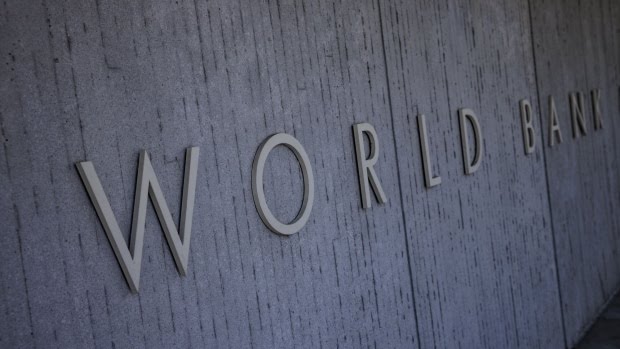Global economy set for weakest half-decade performance in 30 years, says World Bank
As the world nears the midpoint of what was intended to be a transformative decade for development, the global economy is set to rack up a sorry record by the end of 2024—the slowest half-decade of GDP growth in 30 years, according to the World Bank’s latest Global Economic Prospects report.
By one measure, the global economy is in a better place than it was a year ago: the risk of a global recession has receded, largely because of the strength of the U.S. economy. But mounting geopolitical tensions could create fresh near-term hazards for the world economy. Meanwhile, the medium-term outlook has darkened for many developing economies amid slowing growth in most major economies, sluggish global trade, and the tightest financial conditions in decades. Global trade growth in 2024 is expected to be only half the average in the decade before the pandemic. Meanwhile, borrowing costs for developing economies—especially those with poor credit ratings—are likely to remain steep with global interest rates stuck at four-decade highs in inflation-adjusted terms.
Global growth is projected to slow for the third year in a row—from 2.6% last year to 2.4% in 2024, almost three-quarters of a percentage point below the average of the 2010s. Developing economies are projected to grow just 3.9%, more than one percentage point below the average of the previous decade. After a disappointing performance last year, low-income countries should grow 5.5%, weaker than previously expected. By the end of 2024, people in about one out of every four developing countries and about 40% of low-income countries will still be poorer than they were on the eve of the COVID pandemic in 2019. In advanced economies, meanwhile, growth is set to slow to 1.2% this year from 1.5% in 2023.
“Without a major course correction, the 2020s will go down as a decade of wasted opportunity,” said Indermit Gill, the World Bank Group’s Chief Economist and Senior Vice President. “Near-term growth will remain weak, leaving many developing countries—especially the poorest—stuck in a trap: with paralyzing levels of debt and tenuous access to food for nearly one out of every three people. That would obstruct progress on many global priorities. Opportunities still exist to turn the tide. This report offers a clear way forward: it spells out the transformation that can be achieved if governments act now to accelerate investment and strengthen fiscal policy frameworks.”
To tackle climate change and achieve other key global development goals by 2030, developing countries will need to deliver a formidable increase in investment—about $2.4 trillion per year. Without a comprehensive policy package, prospects for such an increase are not bright. Per capita investment growth in developing economies between 2023 and 2024 is expected to average only 3.7%, just over half the rate of the previous two decades.
The report offers the first global analysis of what it will take to generate a sustained investment boom, drawing from the experience of 35 advanced economies and 69 developing economies over the past 70 years. It finds that developing economies often reap an economic windfall when they accelerate per capita investment growth to at least 4% and sustain it for six years or more: the pace of convergence with advanced-economy income levels speeds up, the poverty rate declines more swiftly, and productivity growth quadruples. Other benefits also materialize during these booms: among other things, inflation falls, fiscal and external positions improve, and people’s access to the internet expands rapidly.
“Investment booms have the potential to transform developing economies and help them speed up the energy transition and achieve a wide variety of development objectives,” said Ayhan Kose, the World Bank’s Deputy Chief Economist and Director of the Prospects Group. “To spark such booms, developing economies need to implement comprehensive policy packages to improve fiscal and monetary frameworks, expand cross-border trade and financial flows, improve the investment climate, and strengthen the quality of institutions. That is hard work, but many developing economies have been able to do it before. Doing it again will help mitigate the projected slowdown in potential growth in the rest of this decade.”
The latest Global Economic Prospects also identifies what two-thirds of developing countries—commodity exporters specifically—can do to avoid boom-and-bust cycles. The report finds that governments in these countries often adopt fiscal policies that intensify booms and busts. When increases in commodity prices boost growth by 1 percentage point, for example, governments increase spending in ways that boost growth by an additional 0.2 percentage point. In general, in good times, fiscal policy tends to overheat the economy. In bad times it deepens the slump. This “procyclicality” is 30 percent stronger in commodity-exporting developing economies than it is in other developing economies. Fiscal policies also tend to be 40 percent more volatile in these economies than in other developing economies.
The instability associated with higher procyclicality and volatility of fiscal policy produces a chronic drag on the growth prospects of commodity-exporting developing economies. The drag can be reduced—by putting in place a fiscal framework that helps discipline government spending, by adopting flexible exchange-rate regimes, and by avoiding restrictions on the movement of international capital. On average, these policy measures could help commodity exporters in developing economies boost their per capita GDP growth by as much as 1 percentage point every four or five years. Countries can also benefit by building sovereign-wealth funds and other rainy-day funds that can be deployed quickly in an emergency.








